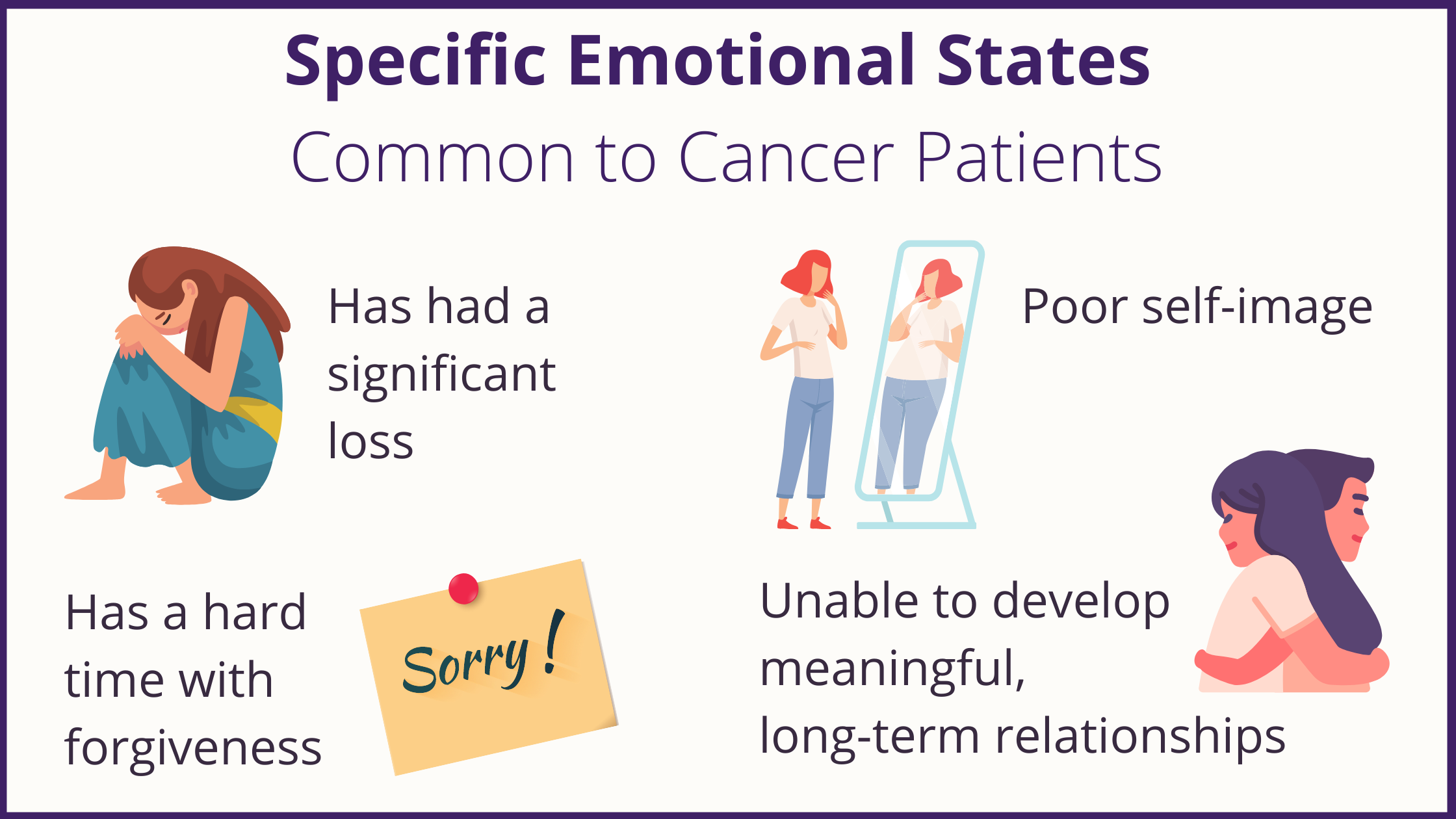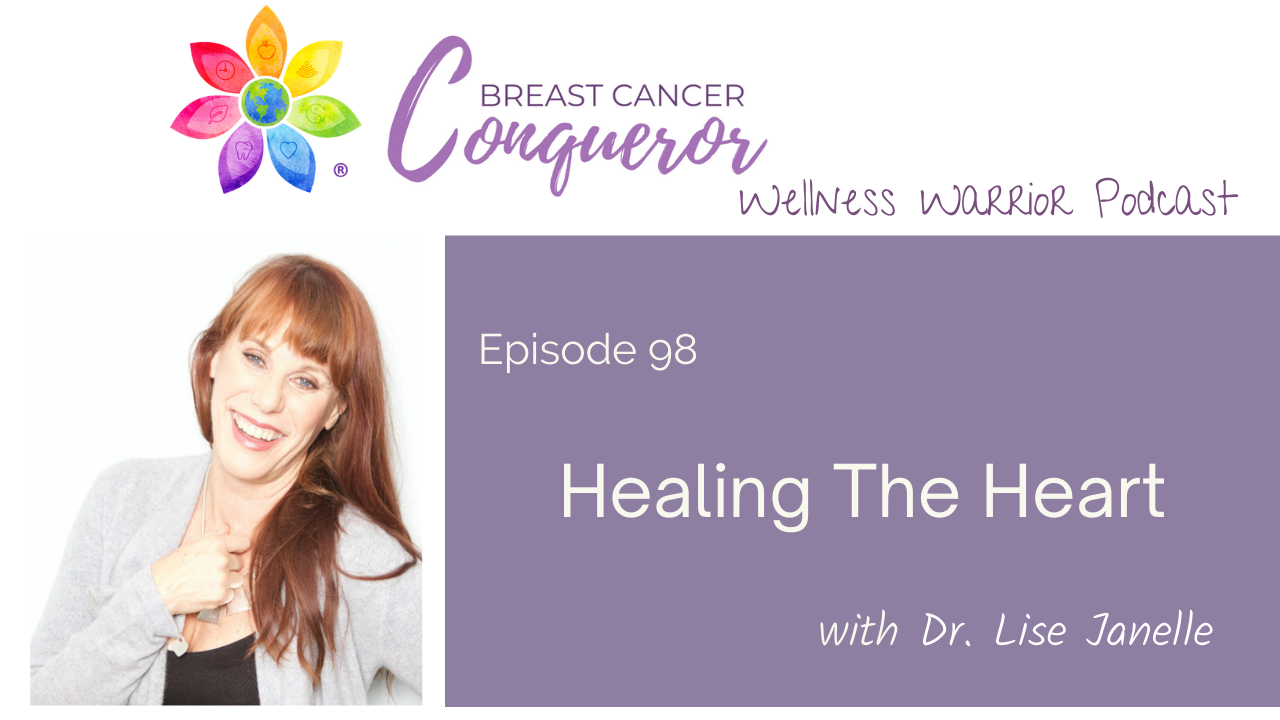
How do our emotions affect cancer? Did you know that the link between emotional stress and the development of cancer was acknowledged by the American Cancer Society as early as the 1950s? We have come a long way since then. Now we know that positive emotions, emotional acceptance, and feelings of gratitude can also have profound healing effects on the body as well. If you still aren’t convinced of the awesome role your emotions play on your healing journey, read on!
The Connection Between Emotional Stress and Cancer
Perhaps no other researcher has shed more light on the subject of emotions and cancer than Dr. O. Carl Simonton. Dr. Simonton was a radiologist, an oncologist, and a pioneer in the field of psychoneuroimmunology.
As he worked with his patients in the 1970s and ’80s, he noticed specific emotional states that many of them seemed to possess. What Simonton and many other experts since then discovered is that most cancer patients:
-have had a significant loss of some kind six to 18 months prior to diagnosis;
-have a hard time with forgiveness;
-are unable to develop meaningful long-term relationships;
-maintain a poor self-image in general.

When a person has one or more of these telltale emotional signs, they are at higher risk for any kind of cancer. On a biological level, this makes sense. These factors place the body in a state of psychological stress.
“Activation of the hypothalamic-pituitary-adrenal (HPA) axis and sympathetic nervous systems (SNS) releases stress hormones such as glucocorticoids and catecholamines,” explain the writers of a 2011 review sponsored by the University of Wisconsin’s Carbone Comprehensive Cancer Center. In layman’s terms, this can suppress the immune system and allow cellular mutation to take hold.
Dr. Simonton’s observations eventually led him to develop a program of emotional support based on the fact that one’s own thoughts could influence a person’s ability to survive.
This program turned into a ground-breaking book published in 1992, Getting Well Again, which is still in print today. It also laid the foundation for the establishment of the Simonton Cancer Center and the Simonton Cancer Center International Programs. For over four decades, Simonton Cancer Centers and programs have taught cancer patients specific tools such as visualization and guided meditation that give them hope, optimism, a sense of control over their situation, and consistently better outcomes on their cancer journey!
Emotional Acceptance and Cancer
Emotional acceptance is the “willingness and ability to accept and experience the negative emotion, to acknowledge it and absorb it.” In other words, in order to heal our emotional hurts, we must first acknowledge that they exist.
It turns out that the mere act of accepting whatever emotions we are experiencing right now can lead to healing and a ground-breaking 2016 study conducted at the University of Arizona proved it. In the study, close to 150 women were taught “emotional regulation techniques.” Those who displayed the highest amount of “emotional acceptance” also had the lowest rates of inflammatory cytokines.
Of particular note was which particular cytokines appeared to be regulated by emotional acceptance. Cytokine IL-8 is produced by Breast Cancer cells. The researchers found that the levels for IL-8, in particular, were much lower in women who had learned to successfully accept their emotions.
Dr. Lise Janelle and the Heart Freedom Method

Once we learn how to truly accept our feelings, no matter how painful they may be, then we can move on to healing them and replacing them with more uplifting emotions. According to French Canadian chiropractor and coach Dr. Lise Janelle, only when we do this can we move from merely surviving to actually thriving in life.
“I know the power that made the body can heal the body,” says Dr. Janelle, who was recently featured on the Breast Cancer Conqueror Wellness Warrior Podcast. According to Janelle, healing takes place when we are able to remove the blocks that prevent healing. These blocks can be “structural, emotional, or biochemical.” Dr. Janelle is the creator of the Heart Freedom Method, which encourages people to live happier and healthier lives by helping them connect more with their hearts.
“It is my life’s mission to help as many people as I can experience the joy, love, and fulfillment that comes from living connected with their hearts,” says Janelle.
She credits the “blessings” of personal hardships in her own life when she was in her late 20s for giving her the insights that eventually led to Heart Freedom. Be sure to check out my insightful conversation with Dr. Janelle on the latest Wellness Warriors podcast!
The Power of Gratitude for Healing
In our interview, Dr. Janelle explains how she has spent many hours studying with masters on the mind-body connection. One such master is a best-selling author and motivational speaker Dr. John Demartini, whose expertise is gratitude.
“…there is a homeostatic mechanism or feedback mechanism designed to bring about homeostasis,” writes Demartini. “These homeostatic mechanisms inside our physiology, in our intuition, in our mind, and in all the events in our life, are all trying to get us to be authentic – in other words, where we have a balanced perspective of ourselves.”
That “homeostatic mechanism” is called gratitude!
Research conducted at the University of California, Davis, the University of Miami, and other institutions collaborates with what Dr. Demartini is saying. They have found that people who consistently practice being grateful have fewer trips to the doctor and tend to exercise more.
“In positive psychology research, gratitude is strongly and consistently associated with greater happiness. Gratitude helps people feel more positive emotions, relish good experiences, improve their health, deal with adversity, and build strong relationships,” says a Harvard University report.
One of the pioneers of the field called “positive psychology” is Dr. Martin E. P. Seligman. In an investigation conducted at the University of Pennsylvania, Seligman tested “positive psychology interventions” on over 400 people. The interventions that received the highest “happiness” scores, with benefits lasting up to a month, were those having specifically to do with gratitude.
I’m interested in the next retreat you’ll be havi g. Please update me of any future events.